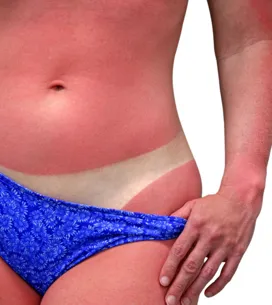These days the beauty market is inundated with products that purport to reverse the effects of time on the skin: miracle creams, collagen masks, retinol serums, you name it. And whilst we know there are sure-fire ways to plump out wrinkles, like botox, that's not an option for everyone. Hyaluronic acid has long been hailed the go-to product for any anti-ageing regime, but what does it actually do? Georgios Tzenichristos, an anti-ageing expert from Lipotherapeia, gives us the low-down on why hyuloric acid is so key to our beauty routine.
What is Hyaluronic Acid?
"Hyaluronic acid is a chemical found in all body tissues and most notably joints, skin and eyes," Georgios tells us. "Hyaluronic acid is the lubricant that allows joints to glide against each other, hydrates the skin, imparts a cushion-like structure to different tissues, including skin, and regulates immune function, wound repair and inflammation."
How can you use it?
Hyaluronic acid is injected into the joints as a treatment for arthritis, Georgios tells us, but injecting it can also hold an aesthetic purpose too: "Injecting it into the skin plumps up wrinkles. It can also be taken by mouth (helps with skin hydration) and also applied to the skin in the form of cream or gel (for hydration, wound healing and anti-ageing)."
Are there any side effects of hyaluronic acid?
As with most things, injecting hyaluronic acid can come with the occasional reaction to the skin. But otherwise Georgios assures us that most hyaluronic acid forms that are used on skin or supplements are "very, very safe."
What is it good for?
Hyaluronic acid applied before sunbathing can help to protect sun damage, but Georgios is keen to point out that it is not a replacement for suncream. He also notes that applied after sunbathing can help the skin recover, and is great for accelerating the healing of wounds. But above all, the most effective use for the acid is for "skin hydration, literally plumping the skin... as such, it is an imprint anti-ageing natural chemical."
Georgios states that hyaluronic acid that is applied directly onto the skin has instantaneous and long-term effects. "Hydration is instant (seconds) and skin plumping is almost instant (minutes)." Which means that continuous use has a significant chance in helping with your anti-ageing regime. (But hyaluronic acid is broken down and re-synthesised by our bodies every 2-3 days so, if used as a cream or supplement, you do need to stick to the routine.)
Have you ever tried hyaluronic acid? What do you think? Let us know! @sofeminineUK
You might also like...
Why Oh Why Are Beauty Vloggers Using CONDOMS To Apply Their Makeup?
Does Toothpaste Really Work On Spots? We Asked The Experts
This Non-Surgical Boob Lift Is Everything Your T*ts Could Ever Want













